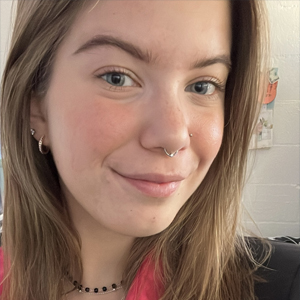Unraveling oncogenesis: What makes cancer tick?
Recent discoveries in cancer biology may bring forward an additional collection of tools in physicians’ arsenal of cancer therapeutics. Scientists now know that many cancer-associated mutations affect chromatin regulation and the function of multiprotein transcriptional complexes, which can ultimately lead to cancer development and growth. This knowledge may be used to develop future clinical approaches.

The ASBMB annual meeting is around the corner, and attendees can expect a wide variety of symposia offerings throughout the event. One of the symposia, oncogenic hubs: chromatin regulatory and transcriptional complexes in cancer, will focus on the role of transcriptional dysregulation, histone modification and chromatin regulatory complexes in cancer formation. Cigall Kadoch of Harvard Medical School and Greg Wang of Duke University School of Medicine organized and will lead the session.
Wang, a current Journal of Biological Chemistry editorial board member and 2022 ASBMB Young Investigator Award recipient, said the symposium will focus on cancer but encouraged attendees from all fields to participate in the session.
“These topics can be applied to many other diseases as well,” Wang said.
According to Kadoch, the topics covered at the symposium directly relate to patient care and developing novel therapeutic approaches.
“We’re at a unique moment in time in which the learnings from first-in-class approaches in the clinic are coming back to the bench to inform new questions and propel next-step advances,” Kadoch said. “(We) hope this section of the ASBMB meeting does a good job of covering that.”
Wang added: “(This field) elevates basic science to the translational level to ultimately benefit patients.”
Kadoch and Wang selected a diverse array of speakers who study the role of molecular condensates, extrachromosomal DNA, chromatin regulatory machinery, epigenetics and more in cancer.
“I am particularly excited about the interplay of the speakers within the section and the opportunity for our audiences to take away numerous new approaches to exploring some of the most pressing biological questions relating to oncogenic hubs,” Kadoch said.
Check out the full program schedule to get the most out of #ASBMB25.
Enjoy reading ASBMB Today?
Become a member to receive the print edition four times a year and the digital edition monthly.
Learn moreFeatured jobs
from the ASBMB career center
Get the latest from ASBMB Today
Enter your email address, and we’ll send you a weekly email with recent articles, interviews and more.
Latest in Science
Science highlights or most popular articles
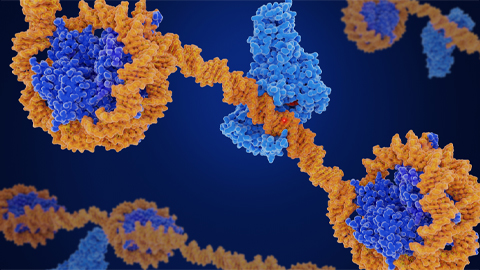
CRISPR epigenome editor offers potential gene therapies
Scientists from the University of California, Berkeley, created a system to modify the methylation patterns in neurons. They presented their findings at ASBMB 2025.

Finding a symphony among complex molecules
MOSAIC scholar Stanna Dorn uses total synthesis to recreate rare bacterial natural products with potential therapeutic applications.

E-cigarettes drive irreversible lung damage via free radicals
E-cigarettes are often thought to be safer because they lack many of the carcinogens found in tobacco cigarettes. However, scientists recently found that exposure to e-cigarette vapor can cause severe, irreversible lung damage.
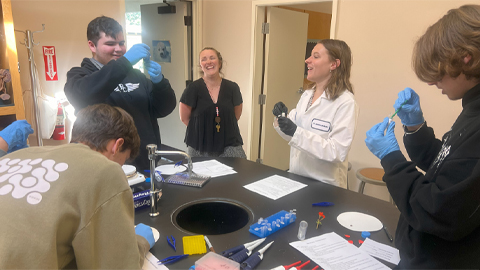
Using DNA barcodes to capture local biodiversity
Undergraduate at the University of California, Santa Barbara, leads citizen science initiative to engage the public in DNA barcoding to catalog local biodiversity, fostering community involvement in science.
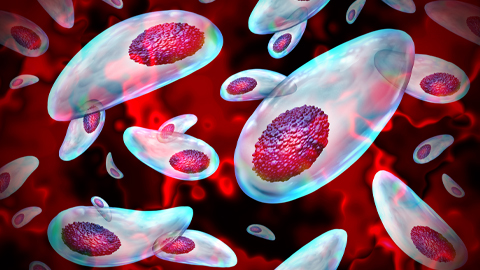
Targeting Toxoplasma parasites and their protein accomplices
Researchers identify that a Toxoplasma gondii enzyme drives parasite's survival. Read more about this recent study from the Journal of Lipid Research.
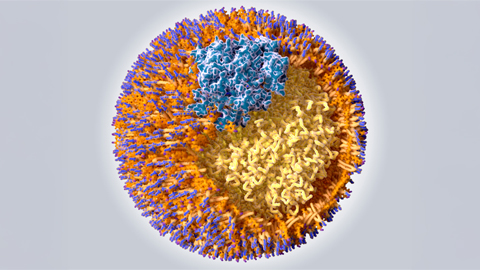
Scavenger protein receptor aids the transport of lipoproteins
Scientists elucidated how two major splice variants of scavenger receptors affect cellular localization in endothelial cells. Read more about this recent study from the Journal of Lipid Research.

